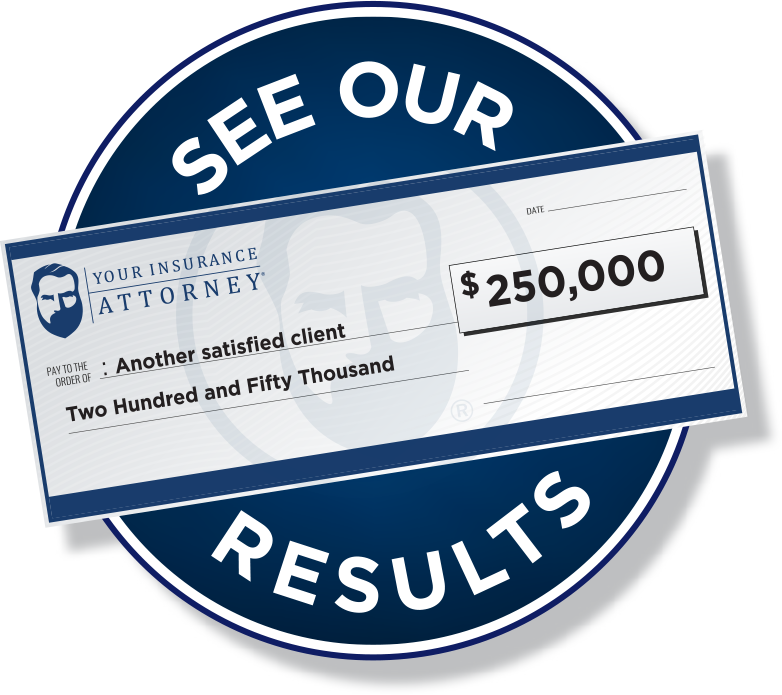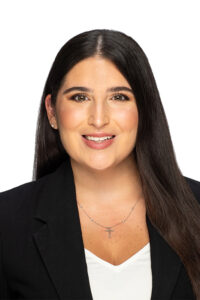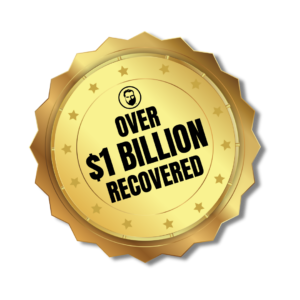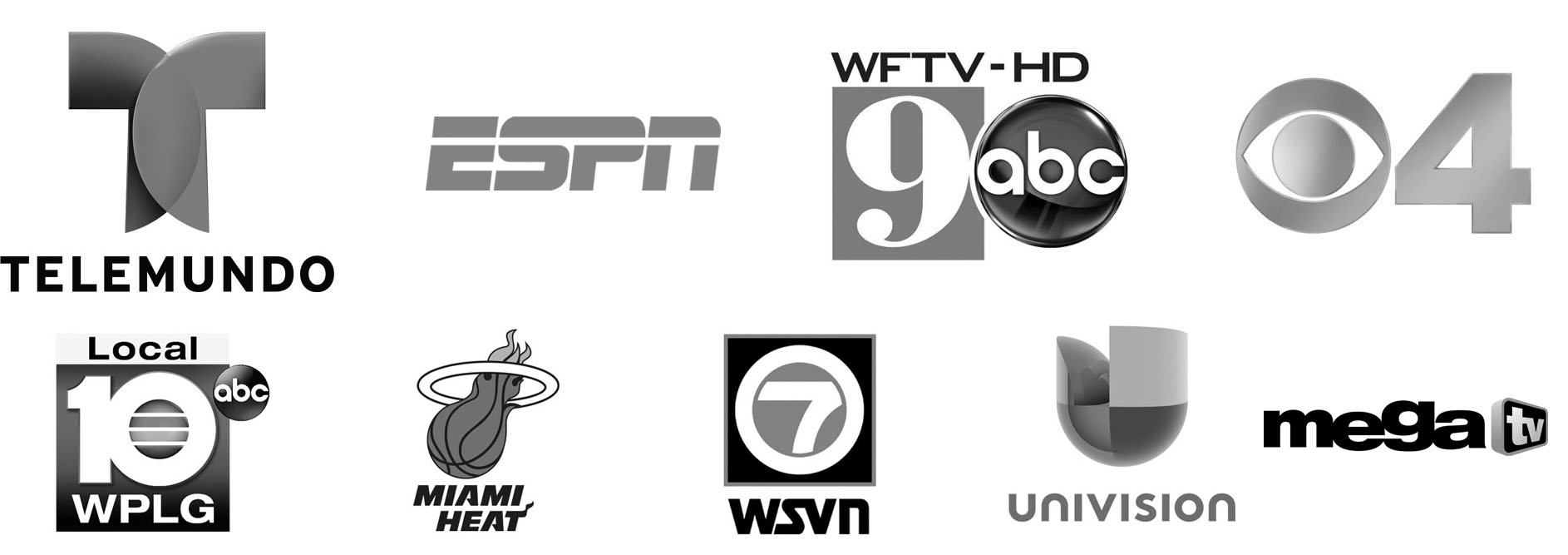
If a car accident injured you in Maitland, you’re now stuck with medical bills, insurance headaches, and an undrivable car. The other driver’s insurance company is probably dragging its feet, questioning your injuries, or offering a settlement that barely covers a fraction of your costs.
Here’s the deal: You don’t have to take their first offer, and you don’t have to fight them alone.
Call Your Insurance Attorney at 888-570-5677 for your free consultation. Our Maitland car accident lawyers know their tricks, and we know how to make them pay what they owe.
 Insurance companies don’t make billions of dollars by playing fair. They know most accident victims are exhausted, stressed, and desperate to move on.
Insurance companies don’t make billions of dollars by playing fair. They know most accident victims are exhausted, stressed, and desperate to move on.
That’s why their first settlement offer is usually a joke—just enough to make you second-guess hiring a lawyer but nowhere near what you’re actually owed. That’s where we come in.
At Your Insurance Attorney, we don’t let insurance adjusters dictate what your claim is worth. We’ve secured over $1 billion for clients across Florida, and we’re not afraid to take a case to court when insurers refuse to play ball. Whether you’re dealing with medical expenses, lost income, or a totaled vehicle, we know how to demand every dollar you deserve.
Accident claims in Maitland aren’t just about state laws—they’re about knowing the local courts, roads, and insurance companies.
A case in Orange County plays out differently than one in Miami or Tampa. Different judges, different defense attorneys, different insurance strategies.
Your Insurance Attorney has handled hundreds of cases in the Orlando metro area, meaning we already know:
Our office is located at 2300 Maitland Center Parkway Suite 122, easily accessible off the I-4 Express. We’re not just another billboard law firm parachuting into Maitland for easy cases. We’re here, we’re local, and we know how to win.
Worried about legal fees? Don’t be. We work on a contingency fee basis, which means you pay nothing upfront.
We front all the costs—expert witnesses, accident reconstruction, court fees—so you can focus on recovery instead of stressing over bills. If we don’t win, you owe us nothing.
Insurance companies have entire legal teams dedicated to minimizing your claim. You deserve a Maitland personal injury lawyer who knows how to fight back. Your Insurance Attorney is ready to step in and ensure you get every dollar you deserve.
After a car accident, the first number the insurance company offers usually sounds generous—until you start adding up the costs. Emergency room visits, follow-ups, physical therapy, lost work hours, and repairs drain your bank account faster than expected.
That’s not even considering the stress, pain, and long-term effects on your life.
Florida law allows accident victims to recover damages in three categories: economic, non-economic, and punitive. Each plays a different role in making sure you’re compensated fairly.
Economic damages cover anything with a price tag—the financial losses you’ve already suffered and those you’ll deal with in the future.
Lawyers and insurance companies don’t guess these numbers. They use receipts, pay stubs, and expert evaluations to leave out nothing.

Money replaces cars and covers medical bills, but what about your actual suffering?
Florida law recognizes that not all damages come with an invoice.
These are harder to quantify, which means insurers fight them harder.
Unlike economic damages, non-economic damages don’t have a set dollar amount. Courts and insurance companies use multipliers based on the severity of the injury.
Most accident claims cover what was lost, but in rare cases, Florida law punishes the at-fault party for gross negligence or intentional misconduct.
That’s where punitive damages come in.
Punitive damages send a message: Some mistakes are accidents, but some decisions are so reckless they deserve extra punishment.
Maitland might not have Miami’s gridlock or Tampa’s high-speed expressways, but don’t let the suburban feel fool you—accidents happen here all the time.
The city sits right between major Orlando commuter routes, meaning a mix of local traffic, tourists unfamiliar with the area, and aggressive drivers racing the clock. Add in confusing road layouts, impatient left-turners, and distracted drivers, and you have the perfect recipe for crashes.
Some streets are consistent trouble spots.
Whether it’s speeding commuters, overloaded intersections, or lanes that don’t give drivers enough time to react, a handful of Maitland roads stand out for all the wrong reasons.
Maitland doesn’t always make the news for major accidents, but the numbers tell the real story.

Insurance companies don’t exist to help accident victims. They exist to make money, and every dollar they pay out is a dollar they’d rather keep. Their playbook is simple: delay, deny, and defend.
They stall claims until people get desperate. They dispute injuries to shrink payouts. And when those tactics don’t work, they dig into technicalities, searching for anything to shift the blame.
Insurance companies treat accident claims like a business transaction—until they realize they’re up against lawyers who know their tactics. Then, it’s a different game.

The accident is over, but the decisions you make next determine everything—the strength of your case, the amount of compensation you receive, and whether the insurance company gets away with shortchanging you.
The problem? Most people don’t realize how much they can damage their own claim without even knowing it.
Insurance companies love victims who make mistakes. A missed doctor’s appointment, a casual post on social media, an offhand comment to an adjuster—each one is an opportunity for them to pay you less.
A lot of accident injuries don’t show up immediately. Adrenaline masks pain, and some conditions—like concussions, internal bleeding, or herniated discs—take days or even weeks to fully surface.
That’s why insurance companies watch medical records like hawks, looking for gaps in treatment they can use against you.
Insurance adjusters will question every expense. If you don’t have a receipt, they act like it never happened.
Keep a file—digital or physical—for everything related to your accident:
Memory fades fast. What seems clear right after the crash becomes fuzzy after weeks of dealing with insurance calls and medical visits.
A detailed personal record keeps your claim accurate and consistent.
Insurance adjusters stalk accident victims online.
They’re looking for anything to contradict your claim, even completely normal activities.
Even private posts aren’t safe. Insurers subpoena social media records in lawsuits, and Florida courts allow social media evidence in personal injury cases.
The best move? Stay off social media until your case closes.
Insurance companies treat police reports as evidence, but they don’t always reflect the full story.
Officers make mistakes, miss details, or rely on biased witness statements.
Adjusters act like they just want to hear your side of the story.
What they really want is to catch you slipping up—contradicting yourself, downplaying injuries, or saying something that lets them reduce your payout.
Insurance companies expect you to be overwhelmed, desperate, and eager to move on.
Their first offer is always low, designed to make you think you’re getting a fair deal when, in reality, it’s nowhere near what you deserve.

Insurance adjusters have one job—pay you as little as possible. They’ll drag out your claim, question your injuries, and throw lowball offers your way, hoping you’ll take the bait. You don’t have to.
At Your Insurance Attorney, we don’t play their game. We build strong cases, push back against their tactics, and fight for every dollar you deserve. Call us today at 888-570-5677 for a free consultation. Let’s make them pay what they owe.
2300 Maitland Center Pkwy
Maitland, FL 32751

You handle personal injury,
property damage, and health
claims. How do you do it all?
What does “we don’t get
paid until you do” mean?
Why should people speak
with YIA first before calling
their insurance company?


2300 Maitland Center Parkway
Suite 122
Maitland, Florida 32751
We truly care about getting the best results for you. Our goal is to help you through powerful representation from start to finish. We work with clients all over the states of Florida, Georgia, Colorado, North Carolina, and California.